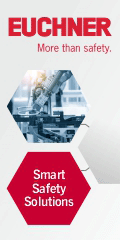
Posted to News on 26th May 2016, 15:28
Navigating safe Li-ion battery transport
There have been numerous stories in the news over recent years surrounding the transport of lithium-ion batteries on planes, particularly concerning the risk of them short circuiting during a flight. In light of this, it's easy to see why international regulations surrounding the shipment of Li-Ion batteries by air is evolving, as Michele Windsor, marketing manager for Accutronics, explains.
We're seeing an increasing number of warnings pop up in our social media feeds advising us of the risks of falling asleep with our smart phones tucked under our pillows, usually accompanied by photographs of singed bedding. This is a result of the Li-ion batteries powering our devices overheating and catching fire.
Li-ion is one of the most cost-effective, energy-dense, battery technologies used to power modern devices. Without it, we wouldn't have smart phones, tablets, portable medical equipment, or even electronic cigarettes. However, Li-ion batteries are vulnerable to thermal runaway, which is a feedback loop where increasing temperature causes the system to get hotter, which increases the temperature, which causes the system to get even hotter, and so on.
There are several things that can cause Li-ion batteries to suffer thermal runaway, but whatever the initial cause, it's the battery's cobalt oxide chemistry that actually reacts to cause problems. When heated, this chemical make-up can reach an onset temperature that then self-heats, progressing into fire and possible explosion. Despite this potential danger, actual occurrences are relatively rare; it simply seems more common in personal electronic devices because of the large volume of Li-ion batteries in use across the modern landscape.
However, it does drive home the reasons for recent changes to regulations concerning the transportation of Li-ion batteries by plane. The International Air Transport Association's (IATA) revised regulations came into effect on 1 April 2016, stating that Li-ion cells and batteries must be transported with a state of charge not exceeding 30 per cent and must be packaged in a way that prevents the energy density of these batteries leading to short circuits.
Further safety measures stipulated in the new regulations state that external boxes and packaging must pass a 1.2m drop test and meet criteria to protect against damage, shifting, or the release of contents in order to assure that the packaging is suitable for air transport. Finally, Li-ion batteries may no longer be shipped on passenger aircraft and may only be transported via cargo craft. The regulations differ if the batteries are packed with or contained within equipment, and that can cause confusion for those offering batteries and battery powered equipment for transport.
It can be tricky navigating new legislation such as this, and there are new challenges to consider such as shelf life and confirmation of state of charge. So, working with a provider as knowledgeable and experienced as Accutronics at safely transporting and exporting batteries globally can reduce the headache. For instance, Accutronics assesses shelf life concerns regarding low power shipping on a case-by-case basis and their smart battery products are fitted with accurate fuel gauges for precise charge information. Buyers should beware, as not all battery manufacturers are as stringent.
Without a revolution in battery technology, the amount of Li-ion batteries flying over our heads is only going to increase, as will regulations endeavouring to prevent them causing a major incident. Controlling the risks large shipments pose to air travel is essential, but navigating the new IATA regulations needn't be a risk for your business if you're working with a battery OEM who can help you.
For more information about the safe shipment of Li-Ion batteries by air, please visit www.accutronics.co.uk.
Want the latest machine building news straight to your inbox? Become a MachineBuilding member for free today >>
Unit 20 Loomer Road
Chesterton
ST5 7LB
UNITED KINGDOM
+44 (0)1782 566688- 566622 1st















